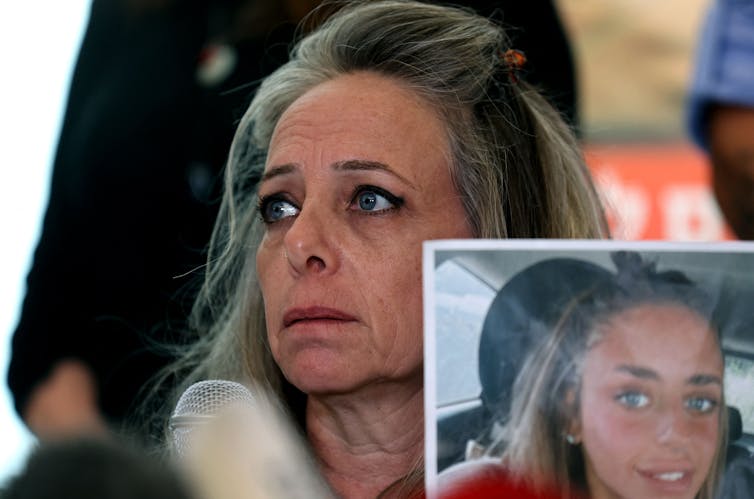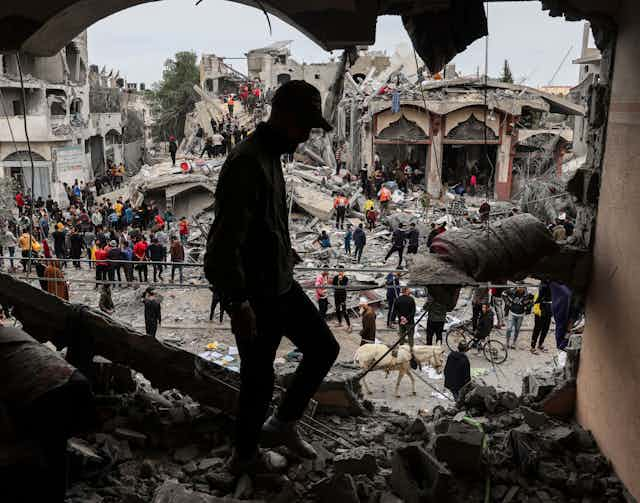For the first time since the deadly attacks by Hamas on Israeli border towns on Oct. 7, 2023, that left at least 1,200 people dead, the Israeli government agreed on Nov. 22 to suspend its air and ground campaign in Gaza for four days in exchange for the release of at least 50 hostages held by Hamas. That suspension has held.
Nearly six weeks in the making, the cease-fire deal also calls for the release of 150 Palestinians held in Israeli prisons. As of the morning of Nov. 27, 58 hostages held in Gaza have been released by Hamas, as well as 111 Palestinian prisoners released by Israel. Of the hostages, 40 were women and children. In a separate deal between Hamas and Egypt, 17 Thai hostages and one Filipino were also released.
The fate of the remaining hostages is still unclear.
To make sense of the deal, The Conversation asked Gregory F. Treverton of USC Dornsife, a former chairman of the National Intelligence Council in the Obama administration, to share his thoughts on what it means for the ongoing war in Gaza.
Military goals unchanged
The agreement between Israel and Hamas – driven by U.S. pressure on Israel – to exchange 50 hostages for 150 Palestinian prisoners and to pause fighting for four days is surely a welcome break in a horrific war.
Not least, it will permit food and fuel to enter a devastated Gaza.
It does not, however, fundamentally change the awful geometry of the war: Netanyahu has pledged that Israel will continue the fight, and there seems little sign that Israel is any closer to a plan for what to do about Gaza or the Palestinians than when the war began.
For its part, events have played out much as Hamas might have planned.
They knew their barbarism on Oct. 7 would call forth a brutal Israeli response.

Hamas knew, cynically, that the more Palestinians who were killed, the better for its cause. Global opinion would shift against Israel, and its American patron, and it has. And Hamas likely expected the Palestinian statehood issue, all but forgotten by the world, including the Arab world, would return to international prominence.
In the process, Hamas probably anticipated it would, paradoxically, become more popular in Gaza, not less.
A distant hope for lasting peace
In the short run, the best that can be hoped is that this exchange and pause will be extended or be the first of more to come.
Certainly, Israel has been under global – and especially American – pressure to agree to some pause, and the Netanyahu “unity” government has felt the heat, domestically, for seeming to disregard the hostages.
In the longer run, after much more killing and suffering, the alternatives still remain dreary. Israel has no stomach for occupying Gaza and surely none for letting Hamas again pretend to govern. The Palestinian Authority remains corrupt, weak and inept in the eyes of those it governs, and as a result is a poor candidate to take on Gaza.
The best hope is a distant one – that some coalition of mostly Arab states but also perhaps including the U.S. could govern Gaza, perhaps exercising some tutelage over a reformed Palestinian Authority.
But that is a long way off, and the hostage exchange and pause does not take the region or the world much closer to a lasting peace.

